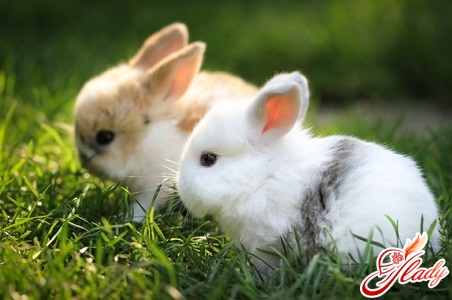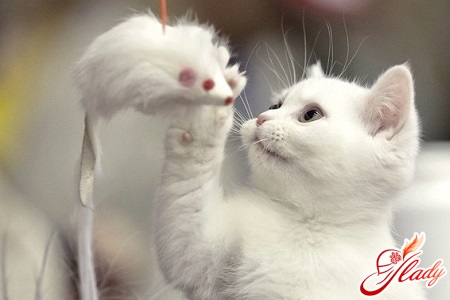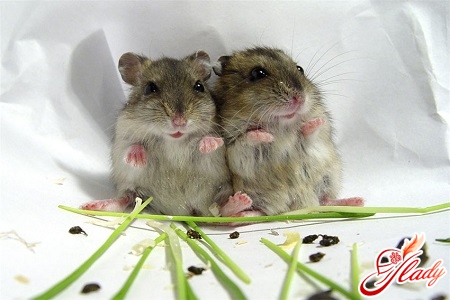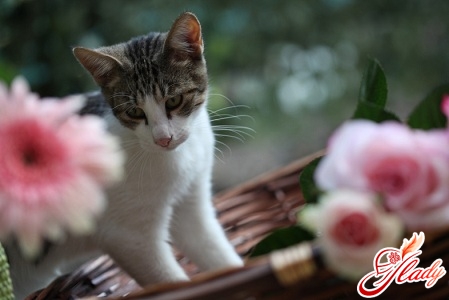 The animal world does not cease to amaze us again andagain. And this applies not only to new species or rare representatives of fauna. Even completely familiar to us pets can be an unexpected discovery. Now, it would seem that such a mystery can be in dogs? However, among these four-legged pets there are simply unique dogs. For example, representatives of the Basenji breed. What is the uniqueness and unusualness of these dogs? What is so special about this breed?
The animal world does not cease to amaze us again andagain. And this applies not only to new species or rare representatives of fauna. Even completely familiar to us pets can be an unexpected discovery. Now, it would seem that such a mystery can be in dogs? However, among these four-legged pets there are simply unique dogs. For example, representatives of the Basenji breed. What is the uniqueness and unusualness of these dogs? What is so special about this breed?
Where did the Basenji come from?
For Russia this breed is still very rare. For the first time in our country, it appeared in the late nineties of the last century. And the history of the Basenji began in Africa more than five thousand years ago. Tribes of natives who lived in the jungles of Central Africa, kept small and graceful dogs as indispensable companions on the hunt. It is also known that the Basenji were an inalienable attribute of local sorcerers, shamans and healers. In Europe these dogs were introduced in 1895. But, unfortunately, the first couple of new African dogs could not adapt in the conditions of civilization, and this experience of breeding a new breed was unsuccessful. The second attempt was made ten years later, when representatives of this breed were settled in the Berlin Zoo, where the first European offspring of the Basenji was born. In 1937, the breed was represented at the Kraft Exhibition in the United States as a "jungle dog" or "Congo-terrier". Since then, the breed began to rapidly gain popularity in the world of dog lovers, which is explained not only by its exotic origin, but also by very interesting features. 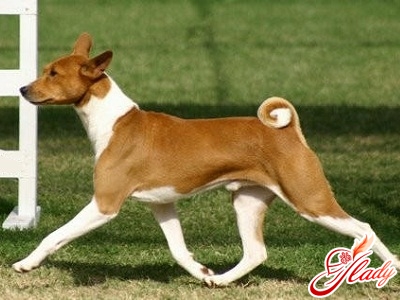
Unique features of the breed
To begin with, these dogs do not bark! Yes, they are absolutely deprived of this characteristic feature of all domestic dogs. You can hear any sounds from the Basenji: snarls, snorts, murmurs, whining, giggles, but not barking. The unusual voice of these dogs is very melodic and at times resembles a kind of Tyrolean singing. This, perhaps, is their main, but not the only "highlight". Unlike all other dogs, females who are ready to reproduce the offspring twice a year, basenji ladies are only able to fertilize once a year. Usually it happens in late autumn, and in winter there appears a few offspring, which has an innate stable immunity to many diseases. Another feature of the Basenji is the lack of a typical canine smell. The silky short hair of these dogs, even in wet form, does not at all smell of "psionic". In addition, their hair is absolutely safe for people suffering from allergies. These dogs are extraordinarily careful and clean. They will never wipe the stained muzzle of the furniture, the carpet or the host's clothes (which many domestic pets do with pleasure). These dogs put themselves in order, washing and licking themselves like cats. Like cats, they also love curling up, lying down near the head or on the lap of the master. But the content of the Bassenji does not differ from the content of other dogs. For example, the question of what to feed the Basenji, the owner of this dog should not arise. The basis of the diet - meat, as well as vegetables, cereals and sour-milk products. In general, Bassenji - just perfect companion dogs, unpretentious in care. They are flexible and assiduous, but at the same time very fond of frolic. They are wonderful and attentive "interlocutors". They have a natural charm and an innate sense of dignity. They are able to emphasize the superiority of the owner without excessive servility. They are tactful and moderately cunning. 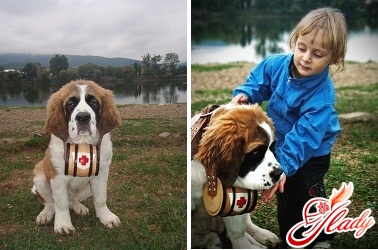
Mythology of origin
Basenji: the origin of the breed is associated with mythology and mystical stories. The natives firmly believed that these dogs are able to protect themselves from evil spirits, restore vital energy and extinguish negative energy. Faith in their magical power is also confirmed by the burials of Egyptian pharaohs, where the embalmed bamenji mummies are buried. One of the ancient African legends says that these dogs once knew how to talk in human language. But one of them recognized the important secret of her master and, being afraid to say a word, was silent for good. So these mysterious African non-moving dogs appeared. We advise you to read:




